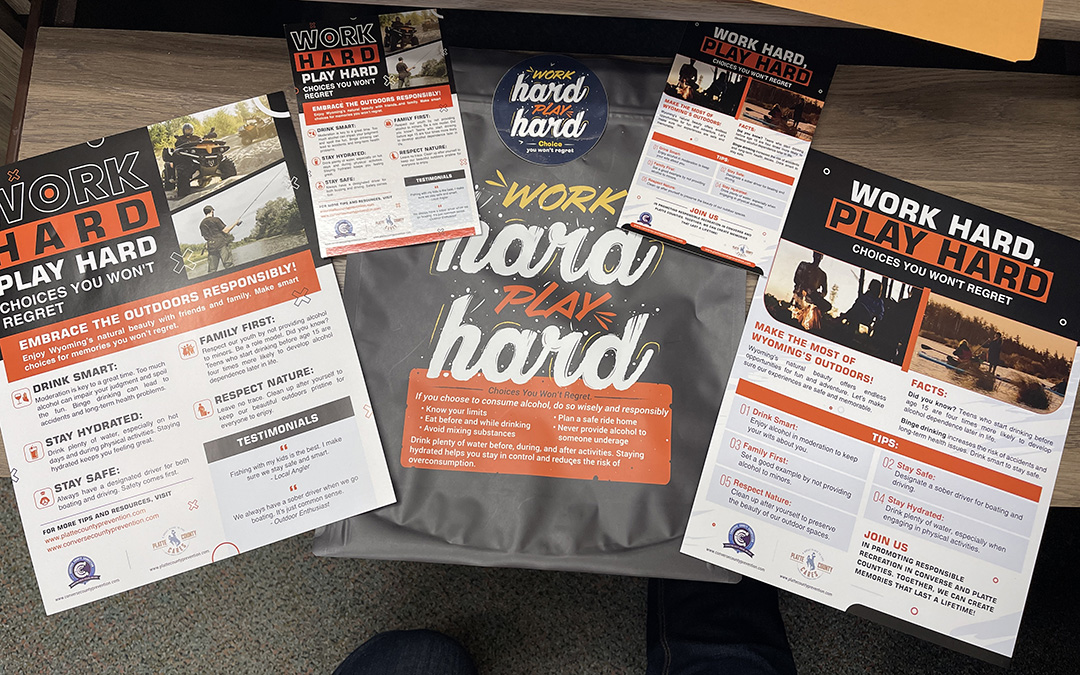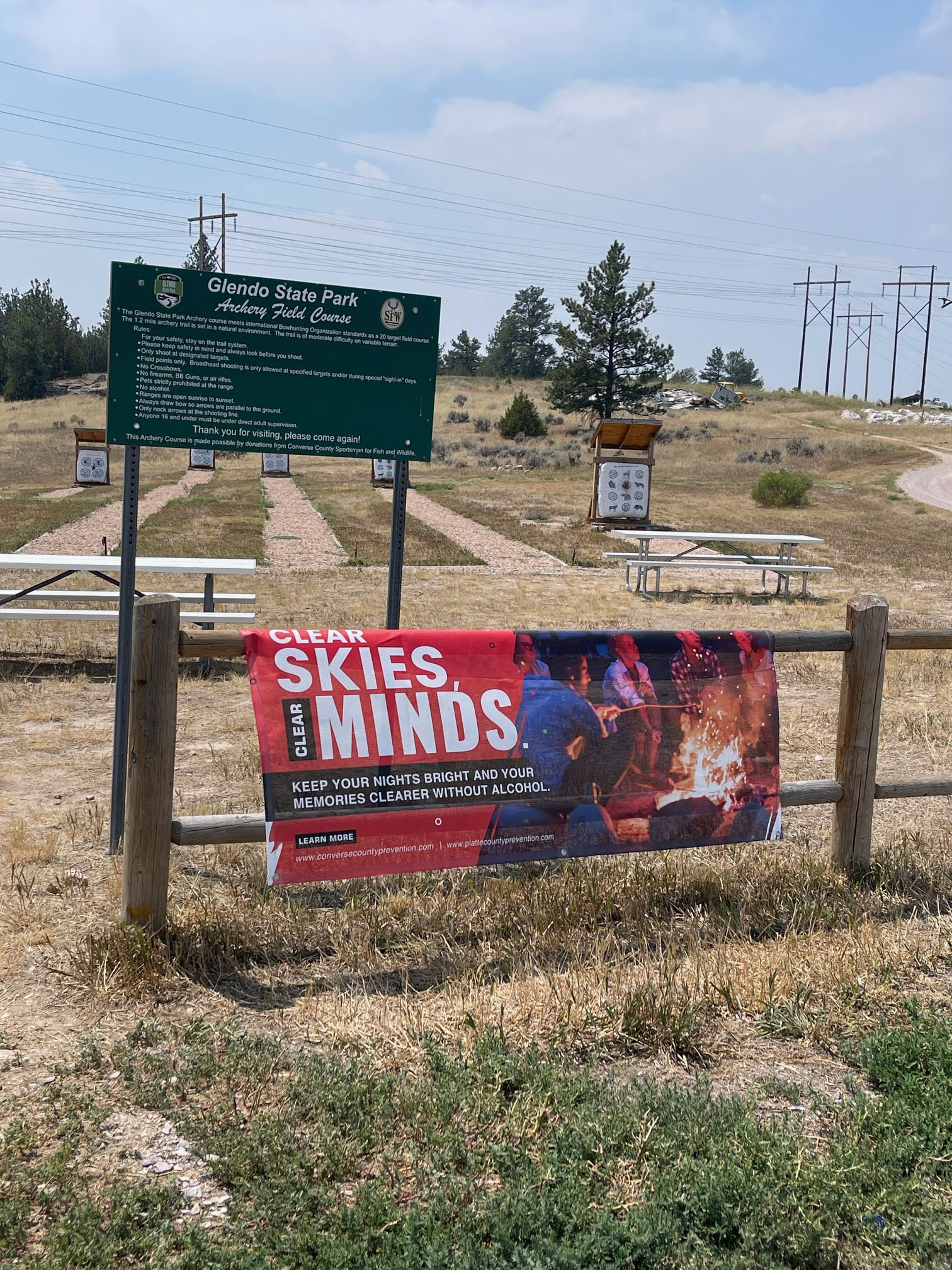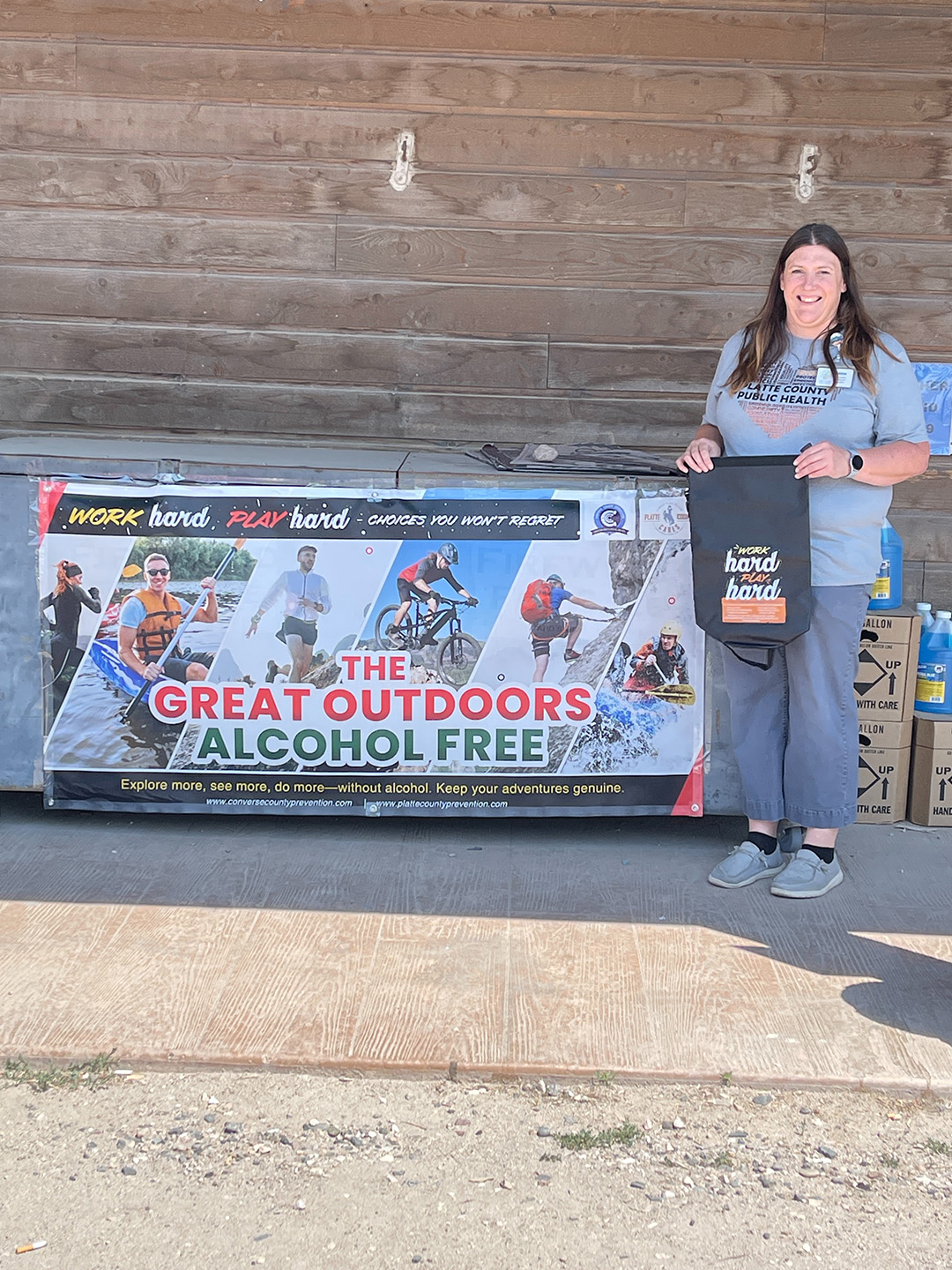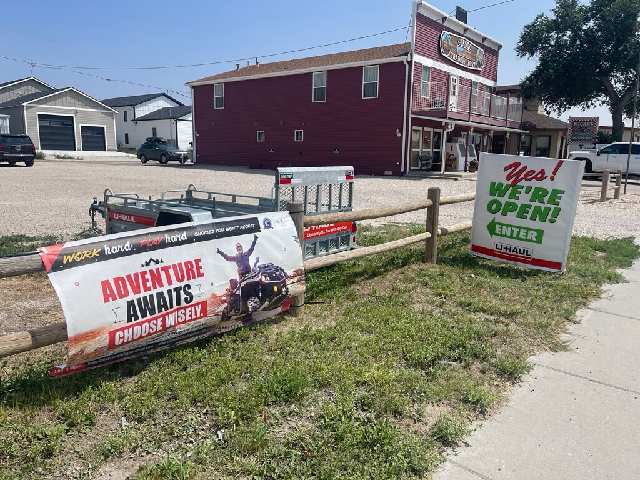Problem
Each year, Glendo State Park sees an average influx of 100,000 visitors per month in the summer, many of whom engage in recreational activities such as boating, fishing, and camping. While alcohol consumption is a common part of these activities, overconsumption poses serious risks, including impaired driving, public intoxication, and alcohol-related injuries.
Traditional prevention efforts struggled to reach this audience at the right place and time, leaving law enforcement and local agencies to manage the consequences. Recognizing this challenge, Platte County Prevention and Converse County Prevention sought a proactive, targeted media approach to encourage responsible alcohol consumption without diminishing the outdoor recreation experience.


Purpose
The Adult Overconsumption Media Campaign at the State Park and surrounding areas was designed to:
- Engage a high-volume audience where alcohol consumption is prevalent.
- Normalize responsible drinking behaviors by reinforcing that most visitors do not overconsume.
- Use data-driven messaging to influence behavior while maintaining a positive, non-judgmental approach.
- Align media placement with visitor behavior patterns, ensuring maximum visibility during peak recreational activities.
The campaign strategically coordinated with law enforcement, state park officials, and local businesses to deploy targeted messaging across multiple platforms, including:
- Physical signage at high-traffic areas such as boat ramps, campgrounds, and park entrances.
- Digital advertising on Facebook, Instagram, and YouTube, reaching audiences before and during their visit.
- Print collateral distributed at gas stations, off-road vehicle dealerships, and local alcohol retailers.
Payoff
The campaign delivered massive reach and engagement over a five-month period:
- 70,000 visitors saw campaign messaging at least once.
- 750,000+ total impressions across digital and physical media platforms.
- Ongoing collaboration with law enforcement and state park officials, reinforcing public safety messaging throughout the campaign.
Beyond the numbers, feedback from visitors and local stakeholders confirmed that the messaging resonated:
- State park officials reported an increase in visitor awareness of responsible drinking behaviors.
- Local law enforcement cited strong alignment between the campaign and real-world observations, supporting ongoing prevention efforts.
- Business owners and staff provided qualitative feedback, noting that conversations about responsible drinking increased among customers.


A Smarter Approach to Alcohol Prevention
What set this campaign apart was its ability to engage a demographic not traditionally targeted in prevention efforts—adults who enjoy outdoor recreation and see alcohol as part of that experience.
- Rather than shaming or restricting alcohol use, the campaign embraced the audience’s values—freedom, outdoor adventure, and personal responsibility—while reinforcing positive behaviors.
- By meeting this audience where they already were (state parks, boating areas, alcohol retailers), the campaign sparked conversations and awareness in an organic, non-intrusive way.
- The focus on social norms (most people choose not to overconsume) created a cultural shift, reducing the perceived pressure to drink excessively.
Why This Matters for You
For mental health professionals, substance use prevention teams, law enforcement, and policymakers, this campaign demonstrates that prevention messaging must be timely, targeted, and aligned with audience values.
- Are your prevention efforts reaching people when and where they make decisions?
- Are you using data to inform campaign placement and messaging?
- Are you integrating multiple platforms—physical signage, digital media, and stakeholder engagement—to maximize impact?
The Adult Overconsumption Media Campaign at Glendo State Park is proof that strategic, data-driven prevention can shift behaviors without alienating your audience.
